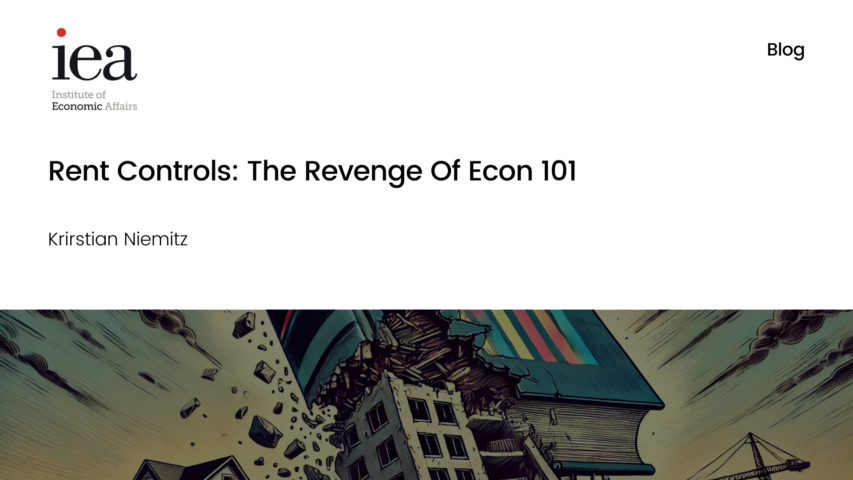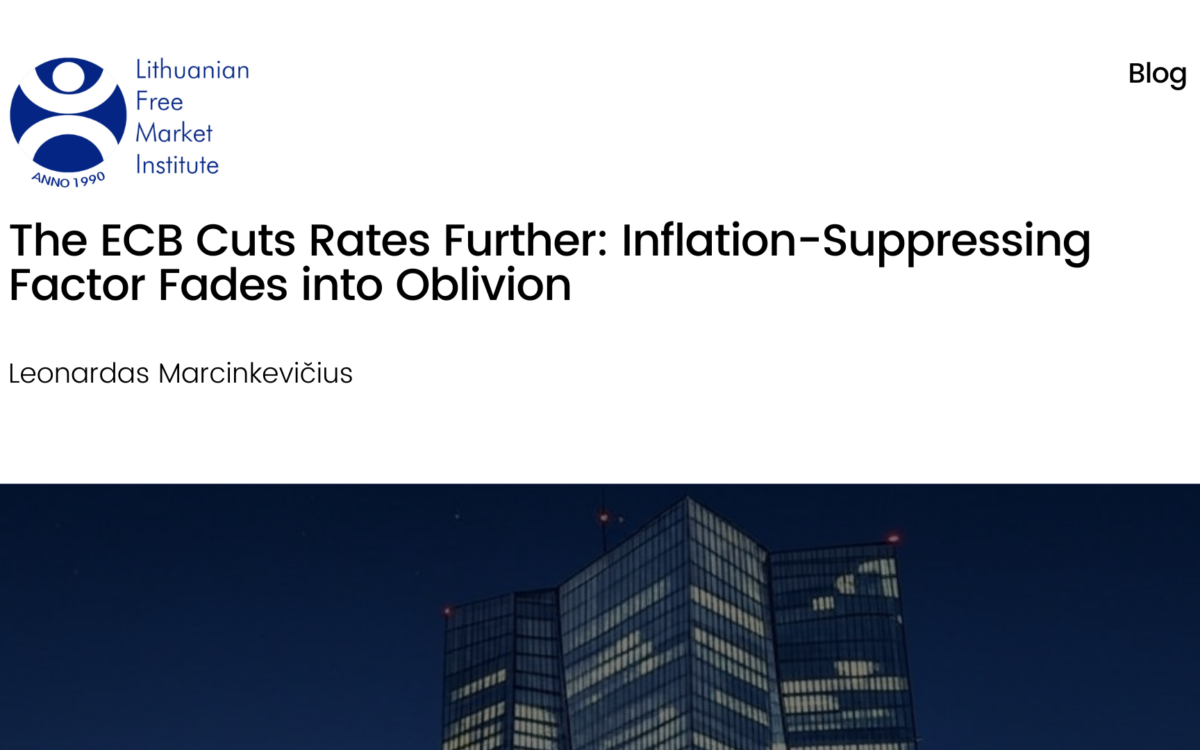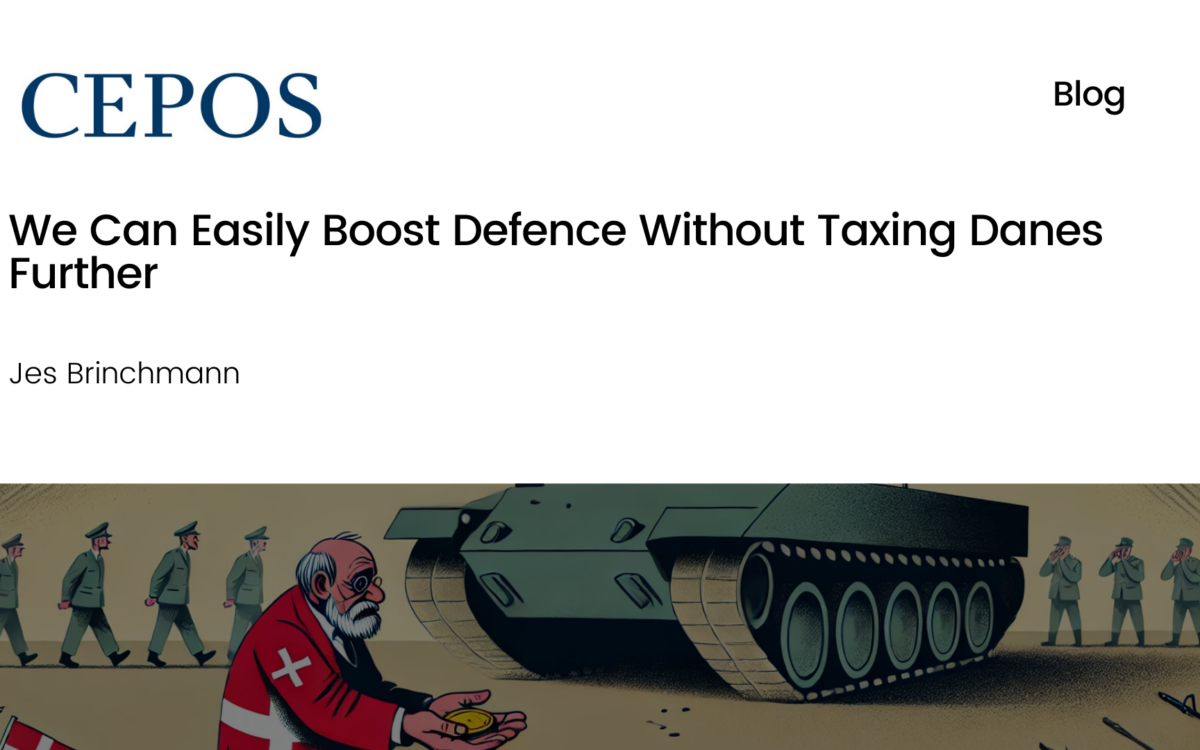Rent Controls: The Revenge Of Econ 101

Rent Controls: The Revenge Of Econ 101
Krirstian Niemitz // 26 August 2020
One of the frustrating things about being an economist is that people listen to you when they shouldn’t, and refuse to listen to you when they should.
When it comes to issues that most economists don’t really understand all that well, people often attribute sage-like qualities to us, ludicrously overrating our judgement. But when it comes to issues which economists do understand quite well, our pronouncements usually fall on deaf ears.
For example, the other day, I was talking to a friend who, due to the current crisis, was quite nervous about his job prospects, and who was considering his options. He was keen to hear my assessment of what the medium-term prospects for the British economy were. When I told him that I didn’t really know any more about this than he did, and that he shouldn’t put much stock in my musings, he kept insisting: “But you’re an economist! Come on – you must know something!”
It’s a shame that we never get these reactions when we do know what we’re talking about. Here’s a counterexample. In the beginning of this year, the city government of Berlin brought in a rent freeze, a particularly crude form of rent control. Predictably, this led to calls from certain quarters for introducing similar measures here in London. I had several discussions about this, making the standard economic case against rent controls, but to no avail. I was told that I was blinded by neoliberal dogma, that the world is not as simple as my Econ 101 textbook, and that this was a brilliant and necessary measure to rein in the power of greedy landlords and speculators.
The first results are already in now, and they can be interpreted as the revenge of Econ 101. In Berlin, the supply of new rental properties coming on the market has fallen by a quarter compared to last year. No, this is not because of the virus: in other big cities such as Hamburg, Munich and Cologne, supply has increased by a third over the same period.
In fact, the one subsector of Berlin’s rental market which is exempt from the rent cap, namely new-built properties, is not that different from the rental markets of other big cities. In this subsector, the number of new rental properties coming on the market has increased by a quarter. Yet in the main market, where the cap does apply, supply has fallen by almost half – a drastic reduction, which more than cancels out any gains made elsewhere.
There has also been an increase in the number of properties that are up for sale, rather than rent, because while rents have been capped, sales prices have not.
So whether you compare the rent-capped part of Berlin’s rental property market to its counterpart in other cities, to its cap-exempt counterpart in Berlin itself, or to the owner-occupier sector – the result is always the same. The rent cap clearly is having a negative impact on supply, and this is happening astonishingly quickly: even I was not expecting to see any impact in this year, or the next.
None of the arguments against rent controls are new. You can already find them all in Verdict on Rent Control, a book which the IEA published in 1972. The book is actually a collection of papers on the subject, some of which are much older than that. It contains one paper by Milton Friedman and George Stigler on wartime rent controls in the US, which were still lingering after the war had ended. It was first published in 1946, but they were already having the same arguments then that we are still having today.
The oldest contribution is a paper by Friedrich Hayek, on rent controls in interwar Vienna (which he obviously did not call “interwar”). Hayek shows how rent controls do not just lead to shortages of rental properties, but have all sorts of secondary effects that distort the wider economy, for example the reduction in labour mobility. This was first published in 1929, and yet, the parallels to today’s situation immediately stand out.
Economic papers often end on the more cautious note that “more research is needed”. You would not do this in a publication on rent controls, because the situation is too crystal clear. No more research is needed. We know – or rather, could know, and should know – everything there is to know.
What we need to do is finally accept it.
This article appeared first on the IEA’s blog.
Recommendations for further reading:
“Verdict on Rent Control” by Friedrich Hayek, Milton Friedman, George Stigler, Bertrand de Jouvenel, Frank Paish and Sven Rydenfelt, IEA, 1972
“The Key to Affordable Housing. A Critique of the CWU’s Rent Control Proposal” by Kristian Niemietz, IEA, 2016
“Rent Controls: How they damage the housing market, the economy, and society” by Gustav Fritzon, EPICENTER, 2020
EPICENTER publications and contributions from our member think tanks are designed to promote the discussion of economic issues and the role of markets in solving economic and social problems. As with all EPICENTER publications, the views expressed here are those of the author and not EPICENTER or its member think tanks (which have no corporate view).



